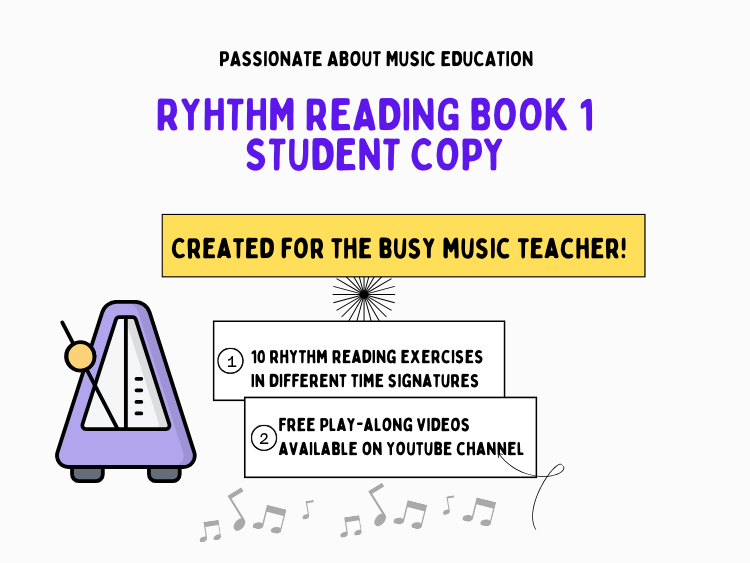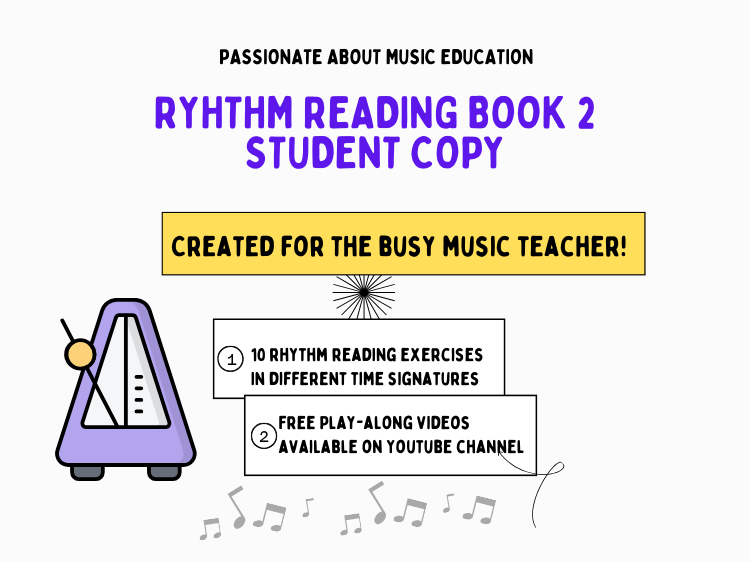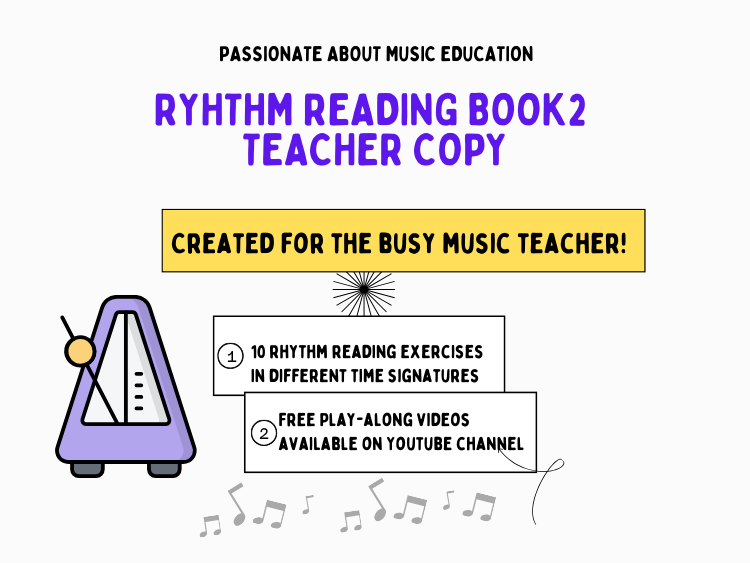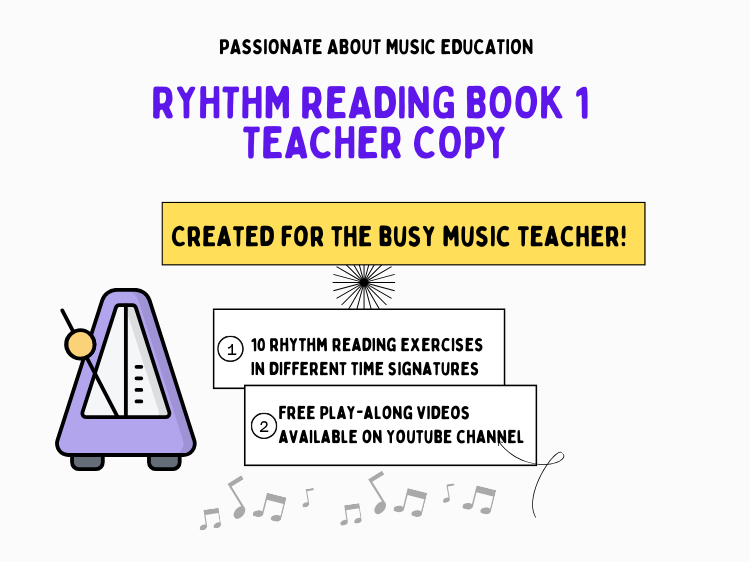Rhythm Reading Bundle for KS3 & KS4 Music classes
Book 1 & 2 Teacher Guides
Book 1 & 2 Student Guides
Worksheet 1 - 4/4 time signature. Basic beat values and rests - minims, crotchets and quavers
Worksheet 2 - 4/4 time signature. Dotted rhythms
Worksheet 3 - 3/4 time signature. Dotted rhythms
Worksheet 4 - 2/4 time signature. Triplets and semiquavers
Worksheet 5 - 6/8 time signature. Dotted rhythms and semiquavers
Worksheet 6 - 9/8 time signature. Quaver rests
Worksheet 7 - 4/4 time signature. Triplets, semiquavers, quaver rests
Worksheet 8 - 5/4 time signature. Irregular time signature
Worksheet 9 - 4/4 time signature. Triplets, semiquavers and rests
Worksheet 10 - 4/4 time signature. More complex rhythm patterns and ties.
Worksheet 11 - 4/4 time signature. Basic beat values and rests - minims, crotchets and quavers
Worksheet 12 - 3/4 time signature. Dotted rhythms
Worksheet 13 - 6/8 time signature. Dotted rhythms and quaver rests
Worksheet 14 - 2/4 time signature. Dotted rhythms and semiquavers
Worksheet 15 - 4/4 time signature. Dotted rhythms and quaver rests
Worksheet 16 - 3/4 time signature. Quaver rests and semiquavers
Worksheet 17 - 5/8 time signature. Irregular time signature
Worksheet 18 - 9/8 time signature. Dotted rhythms, quaver and crothet rests
Worksheet 19 - 9/8 time signature. Ties, semiquavers and rests
Worksheet 20 - 4/4 time signature. More complex rhythm patterns, rests and ties.
For each worksheet there are 12 lines. Each 1 bar rhythm pattern is written for 3 bars with a bar for resting and breathing.This gives students a chance to look ahead at the next line.
By playing the same pattern for 3 bars it allows students a chance to master that rhythm pattern before going onto a new pattern. It’s perfect for beginner students to focus on rhythm accuracy, separate from reading pitch. I have used this method for many years as a warm up exercise for my ensembles and general music classes.
The booklet also comes with suggestions of uses and how to vary the tasks in the classroom setting. The tasks can be used as warm up activities, a starting point for composing, homework exercises and rhythm reading assessments.
There are play-along recordings of each worksheet on my Youtube channel - Music Theory Made Simple that can be used in the classroom.
Something went wrong, please try again later.
This resource hasn't been reviewed yet
To ensure quality for our reviews, only customers who have purchased this resource can review it
Report this resourceto let us know if it violates our terms and conditions.
Our customer service team will review your report and will be in touch.




